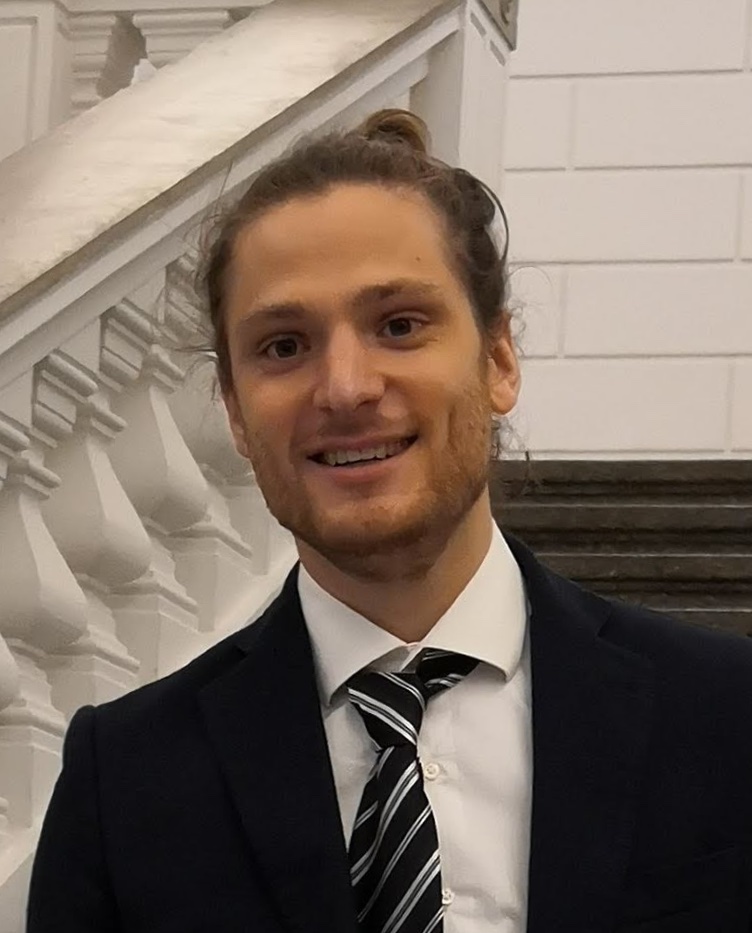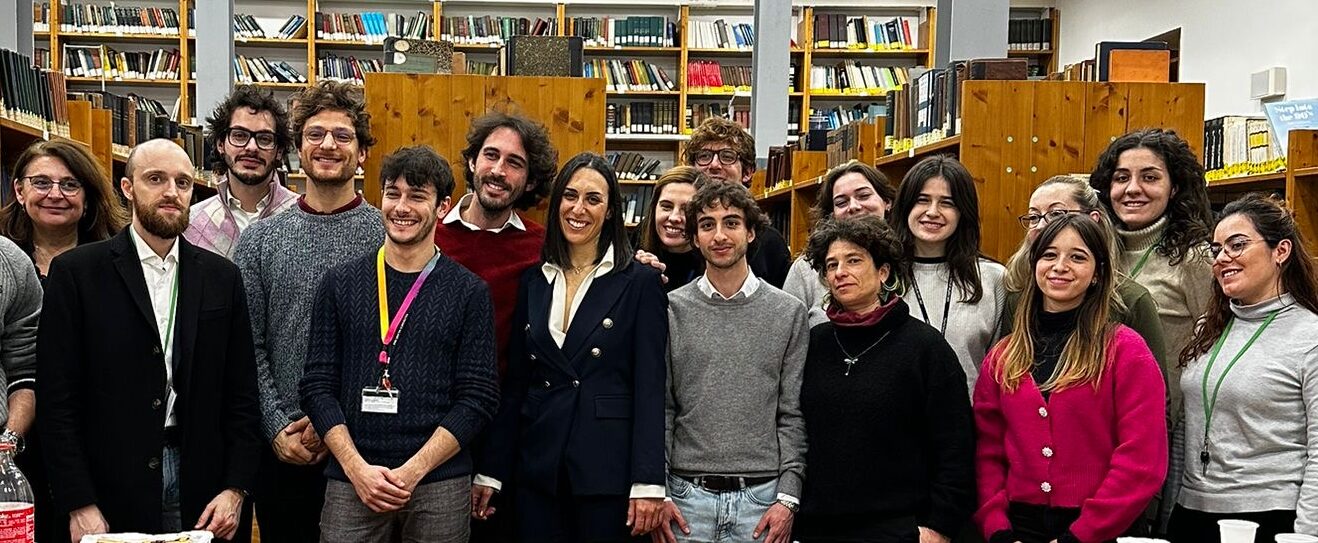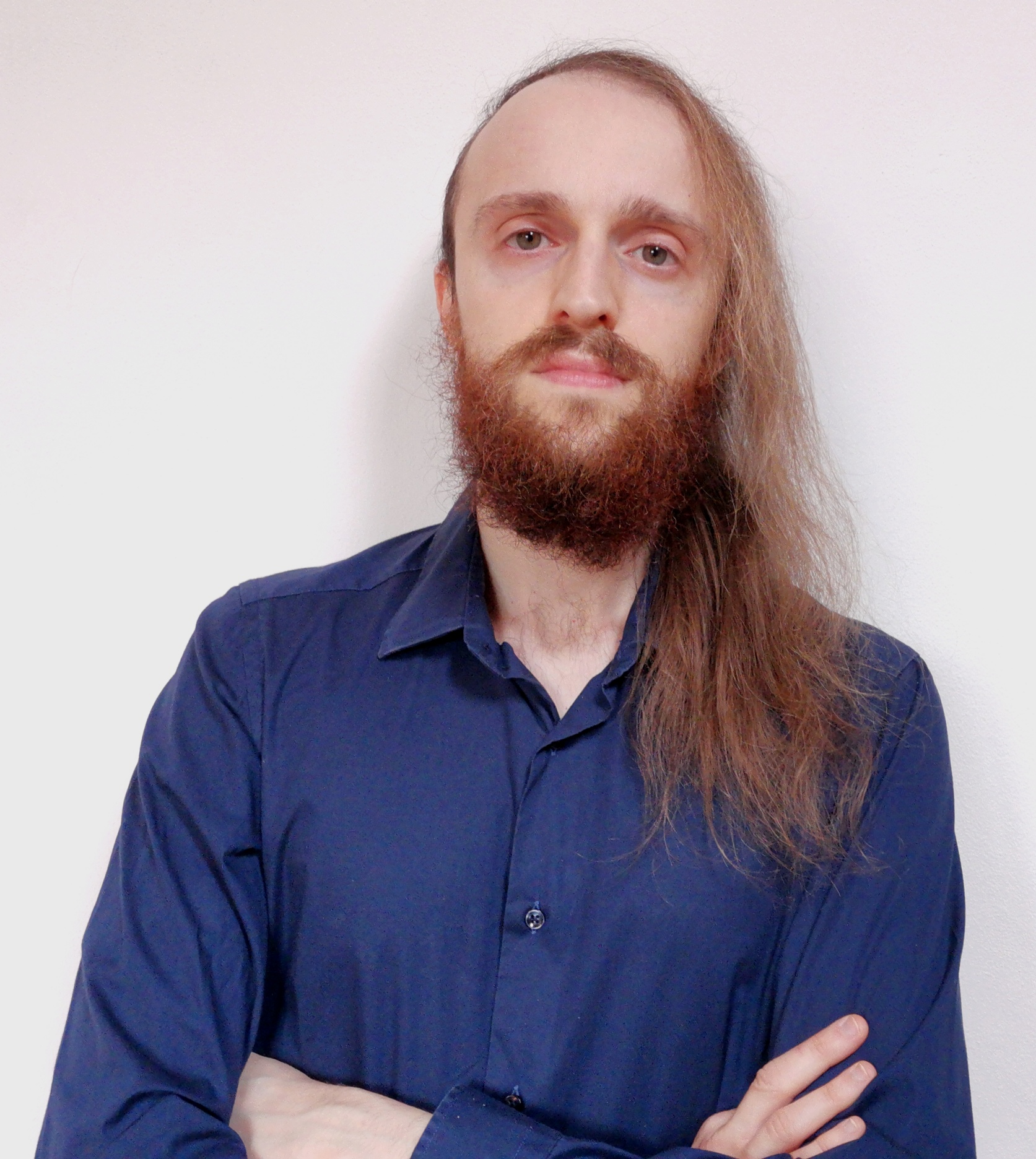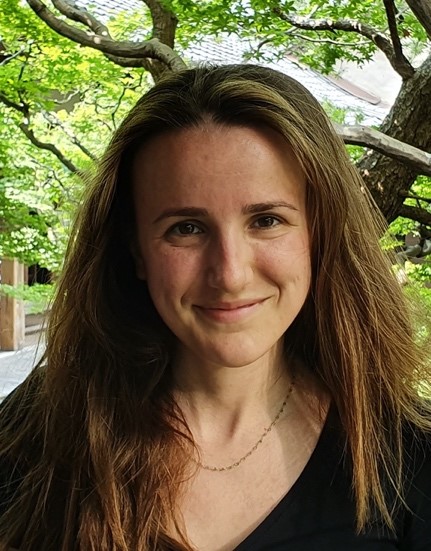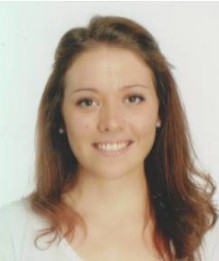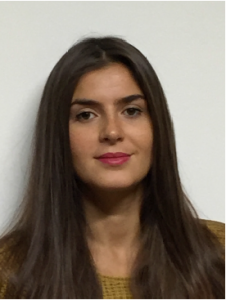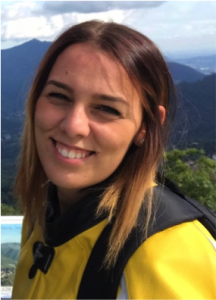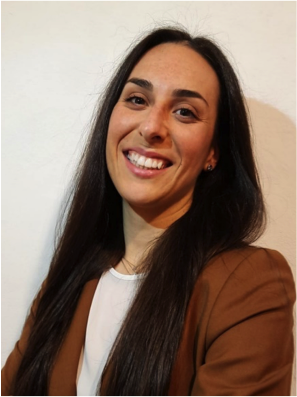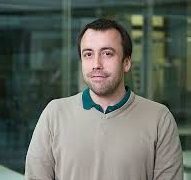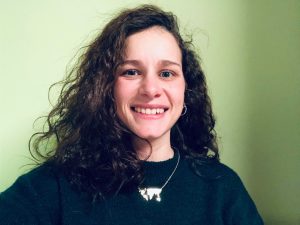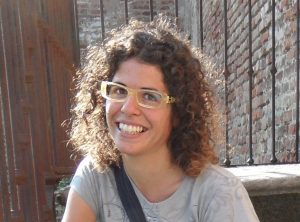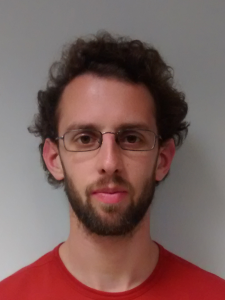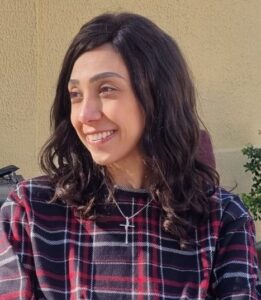 Katherine Agib obtained a Bachelor dregree in Accounting at the Assiut Univeristy in Egypt in 2007, a Master in Business and Administration (MBA) at the ESLSCA Business school in Paris in 2019 and a II level Master in Development Economics and International Cooperation (MESCI) at Università Tor Vergata in Rome in 2021. From 2019 to 2022 she worked as a supply chain and administrative assistant at Save the Children International in Cairo, Egypt. She joined the Mechanobiology group in December 2022, to contribute her knowledge as a project manager for the ERC Advanced project BEACONSANDEGG and the ERC Proof of Concept project NICHILD.
Katherine Agib obtained a Bachelor dregree in Accounting at the Assiut Univeristy in Egypt in 2007, a Master in Business and Administration (MBA) at the ESLSCA Business school in Paris in 2019 and a II level Master in Development Economics and International Cooperation (MESCI) at Università Tor Vergata in Rome in 2021. From 2019 to 2022 she worked as a supply chain and administrative assistant at Save the Children International in Cairo, Egypt. She joined the Mechanobiology group in December 2022, to contribute her knowledge as a project manager for the ERC Advanced project BEACONSANDEGG and the ERC Proof of Concept project NICHILD.
Alberto Bocconi obtained his M.Sc. in biomedical engineering in 2019 and his Ph.D. in Bioengineering in 2025 at Politecnico di Milano, Italy. He attended a Ph.D. program in bioengineering linked to the NC3Rs-funded project MOAB, in collaboration with Prof. Alessandra Balduini’s lab at Università degli Studi di Pavia. His PhD focused on computational modeling and optimization of a millifluidic bioreactor, to mimic the human bone marrow niche for platelet production ex vivo. He is now enrolled full-time at the mechanobiology lab as a Research Fellow, contributing the computational modelling work to the ERC Advanced project BEACONSANDEGG.
Giovanni Buccioli obtained his M.Sc. in Biomedical Engineering in 2023 at Politecnico di Milano, Italy. Here, he is now research fellow, under the supervision of Prof. Emanuela Jacchetti. His position is linked to the MUR-funded project VISION titled “Role of MICAL 2 in nuclear mechanotransduction”, call PRIN 2022 – CUP D53D23007890001. His project focuses on the role of mechanobiology in determining the sensitivity of cancer cells to chemoterapy agents, at various stages of cancer progression.
Engineering in 2023 at Politecnico di Milano, Italy. Here, he is now research fellow, under the supervision of Prof. Emanuela Jacchetti. His position is linked to the MUR-funded project VISION titled “Role of MICAL 2 in nuclear mechanotransduction”, call PRIN 2022 – CUP D53D23007890001. His project focuses on the role of mechanobiology in determining the sensitivity of cancer cells to chemoterapy agents, at various stages of cancer progression.
 Srijan Chakraborty obtained his B. Tech in Mechanical Engineering from KIIT University, India in 2019 followed by a M.Sc. in Biomedical Engineering from KU Leuven in 2022. At Politecnico di Milano he now attends a Ph.D. program in bioengineering linked to EU-funded MSCA doctoral network flIMAGIN3D. His project is focused on predicting the mechanical and mass transport field variables to which cells are subjected during culture in 3D cancer models developed in vitro and implanted in embryonated avian eggs.
Srijan Chakraborty obtained his B. Tech in Mechanical Engineering from KIIT University, India in 2019 followed by a M.Sc. in Biomedical Engineering from KU Leuven in 2022. At Politecnico di Milano he now attends a Ph.D. program in bioengineering linked to EU-funded MSCA doctoral network flIMAGIN3D. His project is focused on predicting the mechanical and mass transport field variables to which cells are subjected during culture in 3D cancer models developed in vitro and implanted in embryonated avian eggs.
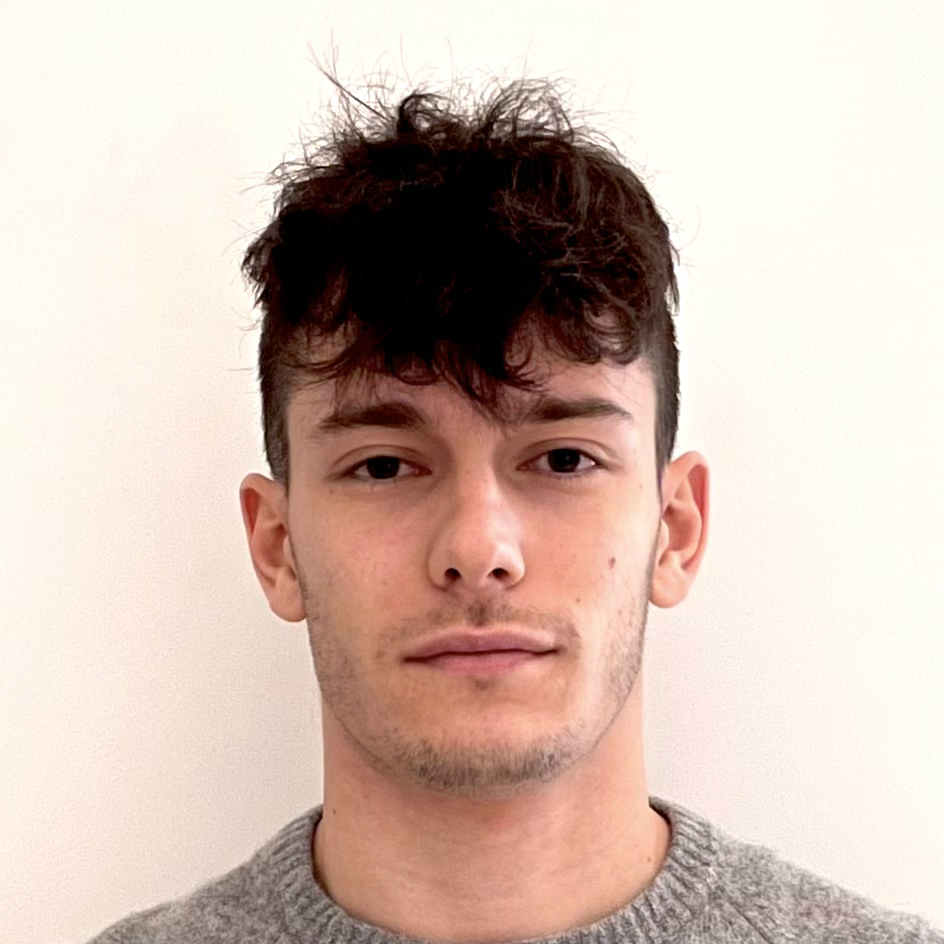 Leonardo Cherubin obtained his M.Sc. in Biomedical engineering in 2022 at Politecnico di Milano, Italy. Here, he now attends a Ph.D. program in bioengineering linked to the ERC-funded project BEACONSANDEGG. His PhD focuses on the development of microstructured chips, and their use to mimic the human tumour niche for testing new therapies to contrast disease progression in breast cancer.
Leonardo Cherubin obtained his M.Sc. in Biomedical engineering in 2022 at Politecnico di Milano, Italy. Here, he now attends a Ph.D. program in bioengineering linked to the ERC-funded project BEACONSANDEGG. His PhD focuses on the development of microstructured chips, and their use to mimic the human tumour niche for testing new therapies to contrast disease progression in breast cancer.
Dr. Claudio Conci obtained his M.Sc. in biomedical engineering in 2017 and his Ph.D. in Bioengineering in 2022 at Politecnico di Milano, Italy. His Ph.D. was focused on the MUR-funded project BEYOND. His first year of post-doc was devoted to the ESA-funded project NICHOID-ET, in collaboration with the group of Dr. Gianni Ciofani based at iiT in Pontedera, Prof. Roberto Osellame’s group at the IFN-CNR in Milano and Prof. Giberto Chirico’s group at Università degli Studi di Milano Bicocca. His research focuses on nonlinear microscopy techniques applied intravitally to monitor implantable miniaturised imaging windows fabricated by two photon laser polymerization. He is now an Assistant Professor of Bioengineering at the Dept. of Chemistry, Materials and Chemical Engineering “G.Natta”. His position is funded by the ERC Advanced project BEACONSANDEGG.
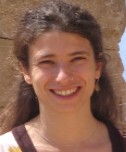 Dr. Emanuela Jacchetti graduated in Physics at Università degli Studi di Milano where she completed her Ph.D. in Physics, astrophysics and Applied Physics in 2009. Then she enrolled at the Istituto di BioFisica-CNR and Centro di Biotecnologie Avanzate in Genoa. From 2010 to 2014 she was a post-doc researcher at NEST, Scuola Normale Superiore (Pisa) and at Istituto di BioFisica – CNR (Pisa). In 2015 she was employed at IRCCS San Raffaele Scientific Institute. She joined the Mechanobiology group in 2015. She is now an Associate Professor of Bioengineering at the Dept. of Chemistry, Materials and Chemical Engineering “G.Natta”. She is the unit PI of the MUR-funded PRIN project VISION on cancer mechanobiology. She is the Co-PI of the EU-funded MSCA doctoral network flIMAGIN3D.
Dr. Emanuela Jacchetti graduated in Physics at Università degli Studi di Milano where she completed her Ph.D. in Physics, astrophysics and Applied Physics in 2009. Then she enrolled at the Istituto di BioFisica-CNR and Centro di Biotecnologie Avanzate in Genoa. From 2010 to 2014 she was a post-doc researcher at NEST, Scuola Normale Superiore (Pisa) and at Istituto di BioFisica – CNR (Pisa). In 2015 she was employed at IRCCS San Raffaele Scientific Institute. She joined the Mechanobiology group in 2015. She is now an Associate Professor of Bioengineering at the Dept. of Chemistry, Materials and Chemical Engineering “G.Natta”. She is the unit PI of the MUR-funded PRIN project VISION on cancer mechanobiology. She is the Co-PI of the EU-funded MSCA doctoral network flIMAGIN3D.
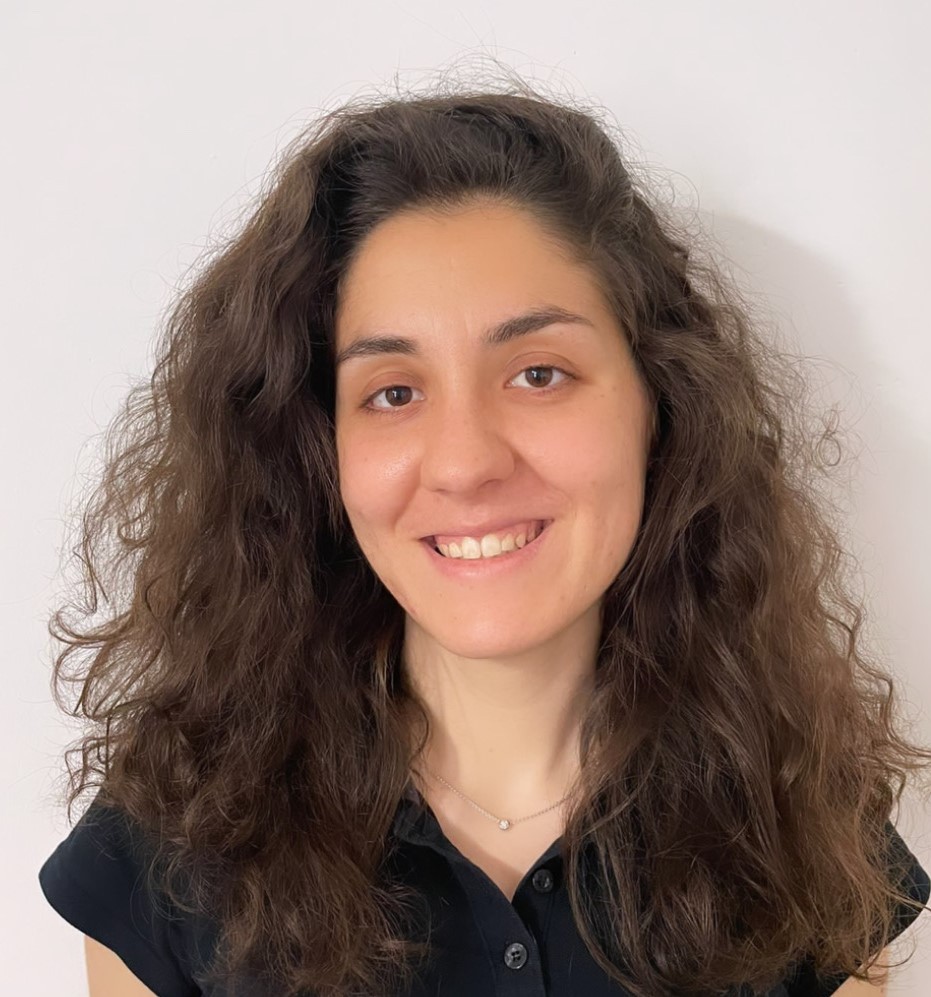 Giulia Lodola obtained Bachelor Degree in Biomedical Engineering in 2021 at Politecnico di Milano and her M.Sc. in Industrial Bioengineering in 2023 at University of Padua. She is now research fellow, under the supervision of Prof. Claudio Conci. Her task is linked to the evaluation of efficacy and oncological selectivity of anticancer drugs in vivo, quantifying the toxicity induced on the avian embryo, comparing the results with those present in the literature. Her position is funded by the ERC Advanced project BEACONSANDEGG.
Giulia Lodola obtained Bachelor Degree in Biomedical Engineering in 2021 at Politecnico di Milano and her M.Sc. in Industrial Bioengineering in 2023 at University of Padua. She is now research fellow, under the supervision of Prof. Claudio Conci. Her task is linked to the evaluation of efficacy and oncological selectivity of anticancer drugs in vivo, quantifying the toxicity induced on the avian embryo, comparing the results with those present in the literature. Her position is funded by the ERC Advanced project BEACONSANDEGG.
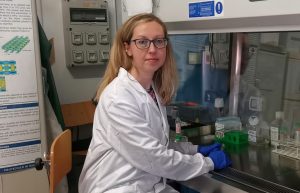 Dr. Chiara Martinelli obtained her M.Sc. in Molecular Biology in 2006 at the Universita’ degli Studi di Milano and her Ph.D. in Medical Nanotechnology in 2011 at the European School of Molecular Medicine in Milano. She worked on the EU-funded Horizon 2020 FET Open project IN2SIGHT entitled “An in vivo bioengineered chip as a smart intravital multiphoton imaging window for new validation protocols of biomaterials”. Her position is now funded by the ERC Advanced project BEACONSANDEGG.
Dr. Chiara Martinelli obtained her M.Sc. in Molecular Biology in 2006 at the Universita’ degli Studi di Milano and her Ph.D. in Medical Nanotechnology in 2011 at the European School of Molecular Medicine in Milano. She worked on the EU-funded Horizon 2020 FET Open project IN2SIGHT entitled “An in vivo bioengineered chip as a smart intravital multiphoton imaging window for new validation protocols of biomaterials”. Her position is now funded by the ERC Advanced project BEACONSANDEGG.
 Giada Mainieri obtained her B.Sc. in Biological Sciences in 2020 and her M.Sc. degree in Biology applied to research in biomedicine at the University of Milan in 2022. Then she held the role of Research Assistant at the Translational Research in Gene Therapy Institute in Nantes, in France, to focus on the study of 3D bioengineered skeletal muscles. Now, she is currently attending a Ph.D. program in Bioengineering at Politecnico di Milano linked to ERC Advanced project BEACONSANDEGG. Her PhD thesis focuses on the fabrication of 3D polymeric micro scaffolds to be implanted in avian embryos in vivo to characterize the fibrotic tumor environment and to develop new targeted cancer therapies.
Giada Mainieri obtained her B.Sc. in Biological Sciences in 2020 and her M.Sc. degree in Biology applied to research in biomedicine at the University of Milan in 2022. Then she held the role of Research Assistant at the Translational Research in Gene Therapy Institute in Nantes, in France, to focus on the study of 3D bioengineered skeletal muscles. Now, she is currently attending a Ph.D. program in Bioengineering at Politecnico di Milano linked to ERC Advanced project BEACONSANDEGG. Her PhD thesis focuses on the fabrication of 3D polymeric micro scaffolds to be implanted in avian embryos in vivo to characterize the fibrotic tumor environment and to develop new targeted cancer therapies.
Matteo Vicini obtained his M.Sc. in Biomedical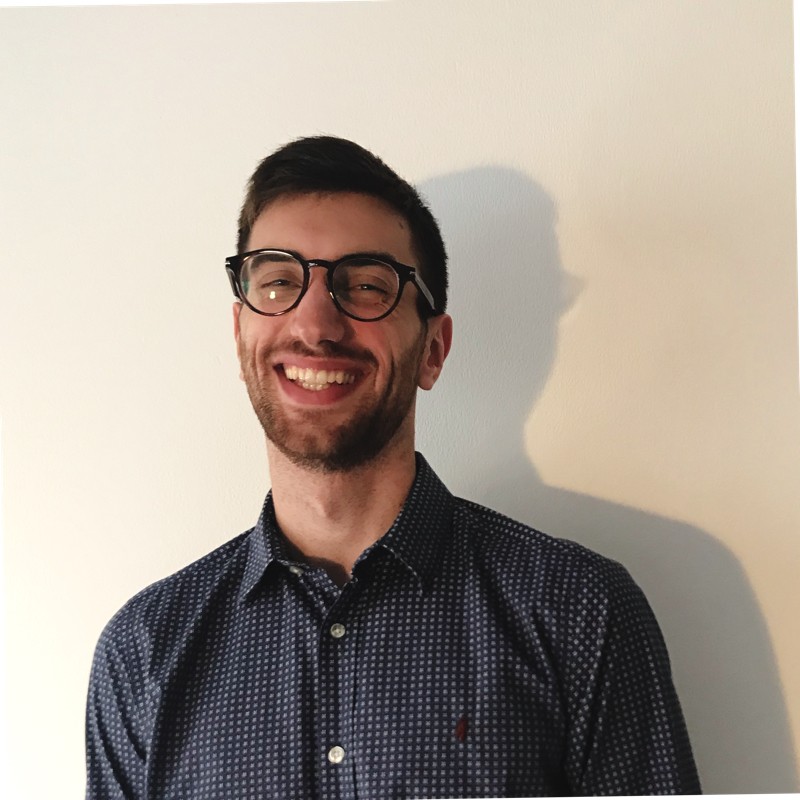 Engineering in 2023 at Politecnico di Milano. Here, he now attends an interdisciplinary Ph.D. program in Bioengineering and Physics, funded and supervised by Prof. Claudio Conci, in collaboration with Prof. Rafael Ferragut’s group at the VEPAS laboratory. His Ph.D. focuses on the intravital inspection of vascular tissue susbtitutes, using time-resolved positron annihilation spectroscopy (PAS).
Engineering in 2023 at Politecnico di Milano. Here, he now attends an interdisciplinary Ph.D. program in Bioengineering and Physics, funded and supervised by Prof. Claudio Conci, in collaboration with Prof. Rafael Ferragut’s group at the VEPAS laboratory. His Ph.D. focuses on the intravital inspection of vascular tissue susbtitutes, using time-resolved positron annihilation spectroscopy (PAS).
Alumni
